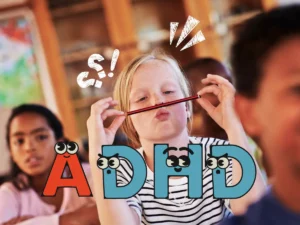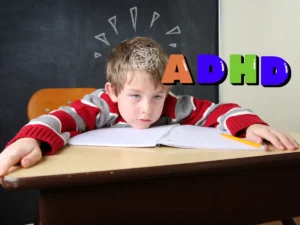Attention Deficit Hyperactivity Disorder (ADHD) is a common neurodevelopmental disorder that affects many children, impairing their ability to focus, control impulses, and regulate their behavior. As a result, ADHD can create significant challenges in a child’s academic, social, and emotional development. At Fayrouz Clinic, with locations in Clifton and Paterson, New Jersey, we specialize in comprehensive pediatric ADHD screening and personalized treatment strategies designed to empower children and help them thrive. Our mission is to provide the right support to ensure your child overcomes these challenges and reaches their full potential.
Understanding the Three Types of ADHD
ADHD presents in three primary types, each with unique challenges that require different approaches. Understanding these types is crucial for effective pediatric ADHD screening and intervention.
1. Inattentive ADHD (ADHD-PI)
Children with inattentive ADHD primarily struggle with focus and organization, without displaying hyperactive behaviors. This makes diagnosing the condition more challenging.
Common Symptoms of Inattentive ADHD:
- Easily distracted and unable to sustain attention for long periods.
- Frequently making careless mistakes in schoolwork.
- Appearing lost in thought or daydreaming.
- Struggling to follow instructions and complete assignments.
- Misplacing important items such as books, school supplies, or toys.
- Avoiding tasks that require prolonged mental effort.
Impact on Children:
- Children with inattentive ADHD may perform below their potential academically, despite being intelligent.
- These children may also struggle to form strong friendships because they appear disengaged or distracted.
Who Is More Likely to Have Inattentive ADHD?
- This type is more common in girls and is often misdiagnosed as anxiety or a learning disability.
2. Hyperactive-Impulsive ADHD (ADHD-HI)
Children with hyperactive-impulsive ADHD exhibit excessive movement and impulsivity, often struggling with self-control and patience.
Common Symptoms of Hyperactive-Impulsive ADHD:
- Constant fidgeting, tapping, or moving around.
- Difficulty staying seated in structured settings like classrooms.
- Talking excessively and interrupting others.
- Acting impulsively without considering the consequences.
- Struggling to wait their turn in activities or games.
- Running or climbing in inappropriate situations.
- Frequent emotional outbursts due to frustration.
Impact on Children:
- These children may face academic and disciplinary issues due to their hyperactivity and impulsivity.
- Socially, they might struggle with friendships because they tend to interrupt or act without thinking.
Who Is More Likely to Have Hyperactive-Impulsive ADHD?
- This type is more commonly diagnosed in boys, as their symptoms tend to be more noticeable at an early age.
3. Combined ADHD (ADHD-C)
Combined ADHD is the most prevalent form, involving symptoms of both inattentive and hyperactive-impulsive types.
Common Symptoms of Combined ADHD:
- Difficulty maintaining focus and getting easily distracted.
- Impulsive behavior such as blurting out answers or interrupting others.
- Restlessness and difficulty staying still.
- Poor organizational skills and forgetfulness.
- Struggles with following directions and completing tasks.
- Challenges in both academic and social settings.
Impact on Children:
Children with combined ADHD often face difficulties in multiple areas:
-
- Academically: Difficulty focusing and completing schoolwork can lead to frustration.
- Socially: Hyperactivity and impulsivity may make it hard to form and maintain friendships.
- At Home: Parents may find it challenging to manage their child’s behavior and energy levels.
How to Identify ADHD in Your Child
Diagnosing ADHD requires careful observation across different environments. Pediatric ADHD screening is a crucial step in identifying ADHD in children.
Key Steps for Identifying ADHD
- Observe Your Child’s Behavior:
-
- Do they struggle with focus but remain calm? (Inattentive ADHD)
 Are they frequently restless and interrupting others? (Hyperactive-Impulsive ADHD)
Are they frequently restless and interrupting others? (Hyperactive-Impulsive ADHD)- Do they exhibit both behaviors? (Combined ADHD)
- Consult a Pediatrician or ADHD Specialist:
- At Fayrouz Clinic, we conduct thorough evaluations using clinical assessments and behavioral questionnaires.
- Gather Input from Teachers and Caregivers:
- ADHD symptoms should be present across multiple settings—at home, in school, and social interactions.
- Schedule a Pediatric ADHD Screening:
- A structured pediatric ADHD screening will help determine the severity and type of ADHD, guiding an appropriate treatment plan.
Treatment and Management of ADHD in Children
Although ADHD cannot be cured, early diagnosis and proper management can significantly improve a child’s quality of life. Early pediatric ADHD screenings are essential for identifying the condition and starting effective treatment.
1. Behavioral Therapy
- Cognitive Behavioral Therapy (CBT): Helps children develop strategies to manage impulsivity and inattentiveness.
- Parent Training Programs: Educates parents on effective techniques to support their child’s behavior and development.
- Social Skills Training: Assists children in improving their peer interactions and communication.
2. Medication
- Stimulant Medications (e.g., Ritalin, Adderall): Help improve focus and impulse control.
- Non-Stimulant Medications (e.g., Strattera, Intuniv): Alternatives for children who do not respond well to stimulants.
- Medications should always be administered under a doctor’s supervision.
3. Lifestyle and Home Strategies
- Structured Routines: A consistent routine helps children stay organized and focused.
- Breaking Tasks into Smaller Steps: This makes tasks more manageable and reduces frustration.
- Encouraging Physical Activity: Exercise can help reduce hyperactivity and improve concentration.
- Minimizing Distractions: Create a quiet and organized study space to improve focus.
The Importance of Early Pediatric ADHD Screening
Early pediatric ADHD screening is critical for identifying ADHD in children and ensuring that they receive the right support early on. A pediatric ADHD screening can help improve academic performance, social interactions, and emotional well-being.
At Fayrouz Clinic, located in Clifton and Paterson, New Jersey, we specialize in pediatric ADHD evaluations and create customized treatment plans to help your child succeed. Don’t wait—schedule a pediatric ADHD screening today to ensure your child gets the support they need.
Identifying ADHD in your child is the first step toward providing them with the tools they need to succeed. Early pediatric ADHD screenings can significantly enhance your child’s development, ensuring that they receive the best possible support and guidance. If you believe your child might have ADHD, don’t hesitate—contact Fayrouz Clinic for expert ADHD evaluations and tailored treatment plans.
